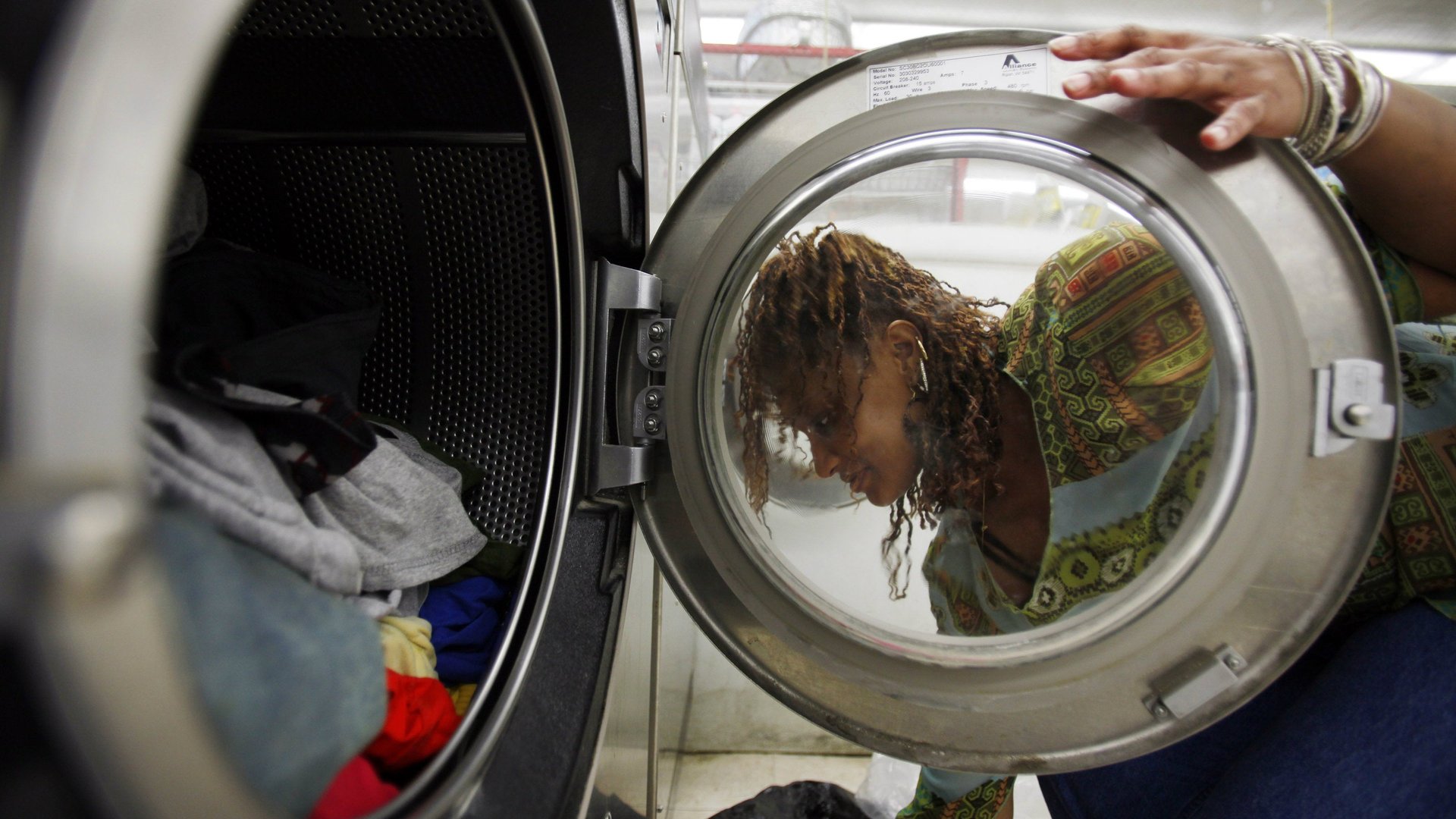One government’s attempt to close the gender gap: housekeeping vouchers for families
According to a 2007 survey, sharing household chores ranks with faithfulness and sex as the top issues people associate with a good marriage. Not surprisingly, it is also one of the things couples fight about the most.


According to a 2007 survey, sharing household chores ranks with faithfulness and sex as the top issues people associate with a good marriage. Not surprisingly, it is also one of the things couples fight about the most.
Two towns in southern Germany are experimenting with a novel program intended to promote more marital harmony. They are funding a two-year pilot program (in German) to help families balance work demands and family life by offering vouchers to employees who put in overtime. Workers who pay employment taxes can get a voucher for €8 ($8.70) for every overtime hour logged; the vouchers can be exchanged at agencies which provide domestic services, like cleaning. This, some say, should help women who want to work more but can’t because there’s too damn much to do at home.
“Our experience shows that often well-qualified women work less hours than they would like to be able to carry out household duties in addition to family responsibilities,” said Christian Rauch, CEO for the employment agency in the Baden-Wuerttemberg region, said in a press release.
The program will also encourage low-skilled workers, like cleaners, to join the formal economy by offering decent wages (and then collecting taxes on them). Between 75% and 83% of help employed in German households are unregistered, according to an estimate by the German Business Institute quoted in the press release. “With professional help in the home, it is easier to reconcile work and family life,” Ralf Kleindiek, state secretary in the federal ministry of family affairs, told the BBC.
Women have joined the workforce en masse and yet they continue to do a lot more housework, as well as child care (though men are increasingly upping their share, too). A report from the Institute of Economic and Social Research in Germany found that women work nearly twice as much as men doing unpaid work every day, including cleaning and child care (an English summary of the research can be found here).
The program is a novel way to acknowledge that much of what women need to be successful at work is direct, logistical help, as well as mentors, role models, and encouragement to lean in and aim high when pursuing jobs.
The program is similar to one launched in Belgium in 2004 that offered vouchers for tasks including cleaning, cooking, ironing, sewing, caring, or shopping. Its main aim was to create new jobs for low-skilled workers—and combat tax fraud. Another stated goal? “Improve the work-life balance of service users by making it easier to outsource domestic work,” a study of the program said.
According to that analysis, the number of people using the Belgian program increased more than sevenfold between 2004 (120,247) and 2012 (857,471). “The introduction of the services vouchers in 2004 has been a great success,” the European Foundation for the Improvement of Living and Working Conditions found.
Rauch, the minister in one of the regions in Germany about to embark on the program, said the program allows the government to tackle two big problems at once: bringing more people into the formal economy and addressing gender inequality in household work.
“If these women increase their working hours by five to ten hours and receive a voucher from us with which they can afford quality help in the household, we’ll hit two birds with one stone,” he explained.
It could also improve give couples less to fight about, which would make for a hat trick of social policy success.